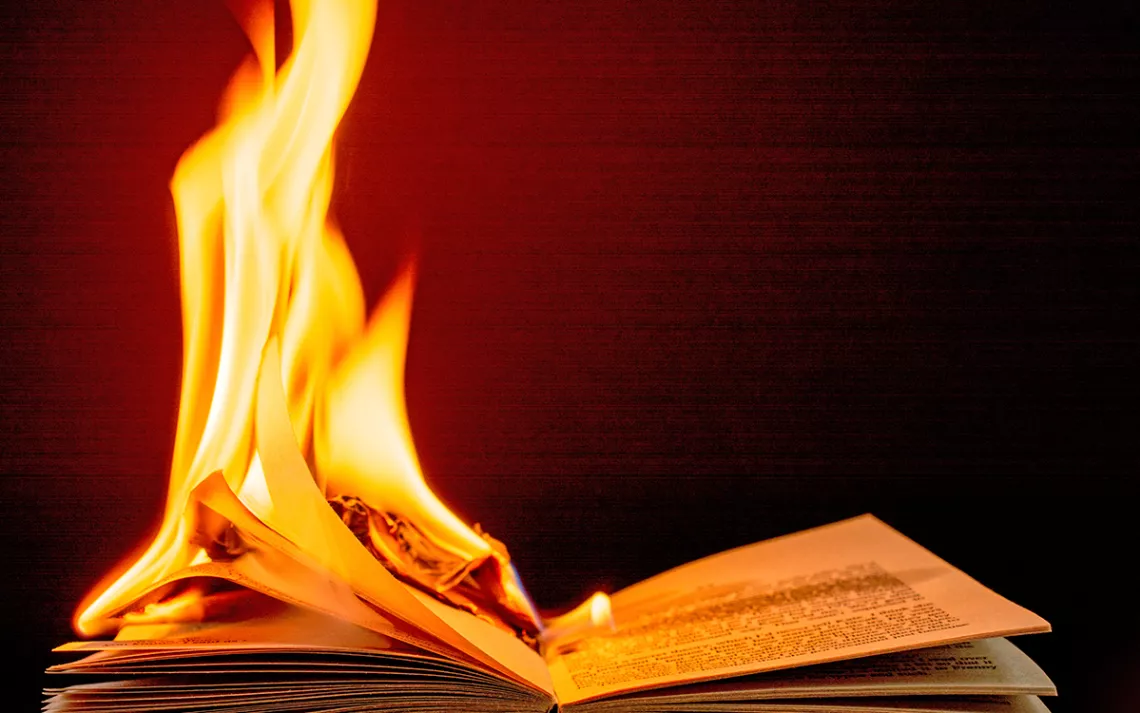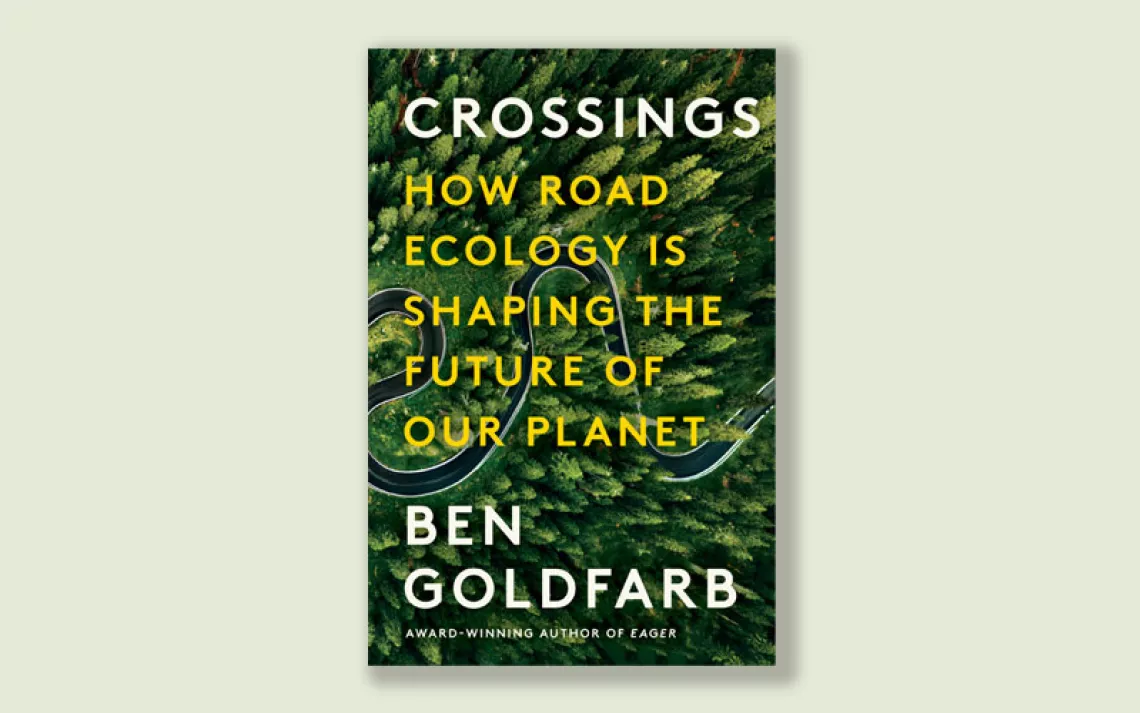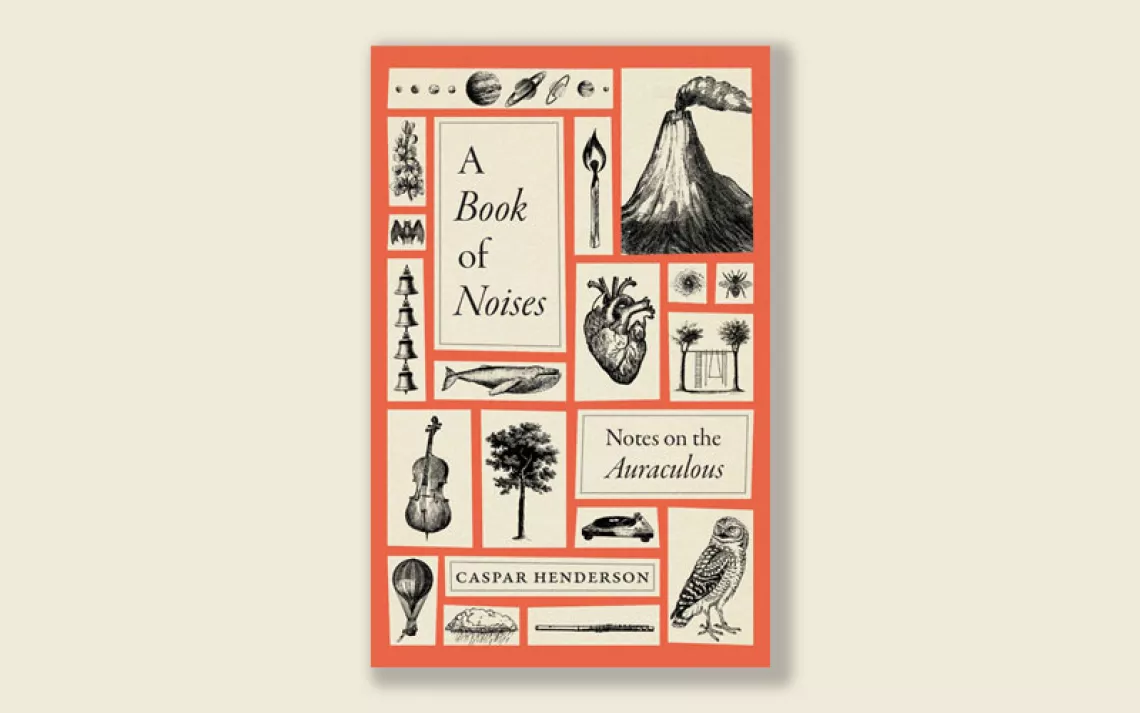Don’t Say Gay. Or Climate Change.
Words of warning, this Banned Book Week, from one who knows

Illustration by wwing/iStock
During my three decades as an environmental reporter, I got used to people being upset by what I wrote. My critics included fossil fuel and chemical companies, real estate developers, the timber industry, a vast array of politicians, and the 300 or so people who chose to make their displeasure known the one time I employed a dangling modifier in the first sentence of an article.
None of these people, however, took their complaints to the police. That only happened after I started writing for children.
In 2017, I published The 57 Bus, a nonfiction narrative for young adults about two teenagers on either side of a high-profile crime. The book was based on reporting I did for The New York Times Magazine, and based on the responses to the original article, I expected some pushback. The prejudices of some readers made it difficult for them to feel empathy for one or both of the two main characters—an agender white 18-year-old and a 16-year-old Black boy whose paths crossed aboard a public bus with dire consequences for both. Others felt that issues of gender, race, and justice were too spicy for a teen audience.
Yet for the most part, readers surprised me with their willingness to engage with the book’s themes. The 57 Bus won a number of prestigious awards and earned a spot on the New York Times best-seller list. Schools in the US and abroad placed it in their libraries and on their curricula. Last year, Time magazine added The 57 Bus to its list of the 100 best young adult books of all time.
And then, about 18 months ago, something changed.
It started slowly, with incidents that mostly seemed silly, like the outraged mother in Warwick, Rhode Island, who told a reporter that high school students would be better off learning “cursive writing” than discussing the issues in my book. But things accelerated fast. The 57 Bus was challenged in school districts in states as diverse as New Jersey, Wisconsin, Idaho, Kansas, Missouri, Pennsylvania, and California. In Texas, Republican state senator Matt Krause included it on a list of some 850 titles he wanted to ban.
Then, this past May, the sheriff of New Hanover County in North Carolina responded to complaints from parents by dispatching his deputies to investigate nine books, including mine, to see whether the teachers and librarians who stocked them in their classrooms and libraries should be prosecuted for distributing obscene materials to minors.
It wasn’t the first time my book had been called obscene or pornographic, despite the fact that it doesn’t contain any sex. The very mention of the existence of LGBTQIA people seems to strike some folks as obscene—which of course says more about them than it does about my book. But while I enjoyed imagining a crew of hapless sheriff’s deputies diligently flipping through the pages in a fruitless search for dirty bits, I knew that the situation didn’t feel all that amusing to the New Hanover teachers and librarians waiting to see if they were about to be dragged away in handcuffs for having the book on their shelves. The sheriff, Ed McMahon, forwarded a report to district attorney Ben David that included a list of passages in the nine books that David said were “most offensive from the standpoint of just contemporary community standards.” But while David told constituents that he shared the original complainants' concerns, his legal scholarship eventually led him to conclude that the nine challenged books were protected by the First Amendment of the US Constitution. Nobody would be arrested after all.
“Good for you,” people often say when I tell them how frequently my books is challenged. “Wear it like a badge of honor.” But while my status as a banned book author certainly puts me in terrific company, it would be a tremendous mistake to see book-banning efforts as something benign or amusing. So far this year, 1,651 different titles have been challenged, including 27 instances in which police reports were filed against library staff because of the books available on their shelves.
The people challenging books are not just wooly old fuddy-duddies clucking their tongues at anything more modern than Anne of Green Gables. They are part of a highly organized movement, helmed by well-funded GOP-linked groups like Moms for Liberty (an ironic name for a pro-censorship organization), which gins up outrage among conservative parents, often using “obscenity” as a cover for more sinister objections. (The graphic novel Maus, which tells the story of the author’s father’s experiences during the Holocaust, was banned in Tennessee, allegedly because it contained swearing.) These anti-reading organizations circulate lists of books for their members to challenge and provide playbooks on how to “challenge the regime of wokeness,” in the words of one Fox News article. Their particular focus is books with LGBTQIA and anti-racist themes, including many whose only controversial content is that they have a gay, trans, or nonwhite main character. Between July 2021 and June 2022, the anti-censorship PEN America reports, 138 school districts in 32 states banned a total of 1,648 titles, usually focusing on ones that dealt with race, gender, or sexuality. Their decisions reduced access to books for nearly 4 million students.
“Dumb move,” people often tell me. “Banning a book is a great way to make sure teenagers want to read it.” But appeal without access is a hollow victory. How many young people can afford to buy the dozens of books that are no longer available in their school or town libraries? There’s a good chance they don’t even know which books they aren’t seeing, which voices they aren’t hearing, which topics they aren’t discussing. Many teachers and librarians are afraid to even mention books that are “controversial” for fear of losing their jobs or facing an onslaught of harassment. An Oklahoma teacher who shared a QR code giving students free access to digital versions of banned books lost her job and is now in danger of having her teaching credential revoked.
Individual book challenges are just one prong of a wholesale attack on what can be taught in schools. So far, 19 states have laws or rules restricting what teachers can say about racism, American history, or gender identity, and many more legislative efforts are pending. These laws are often so broadly worded that they can be used to restrict access to nearly anything that conservatives don’t want to hear. In addition to his better-known “Don’t Say Gay” law, for example, Florida governor Ron DeSantis has signed a vaguely worded law that prohibits schools and libraries from having any materials that are "not suited to student needs and their ability to comprehend the material presented” and makes it easier for parents to challenge what happens in the classroom. This spring, the state’s Department of Education rejected 54 of 132 math textbooks submitted by publishers because they “contained prohibited subjects,” a category that included “social-emotional learning,” “multicultural teaching,” and climate change. One reviewer objected to a high school math textbook “talking about a climate crisis as if it’s a proven fact.”
That remark may well be a harbinger of what’s to come. The fight may have started in English and History classrooms, but it will inevitably move to science and math instruction, and environmental issues are likely targets. As the Bulletin of Atomic Scientists recently noted, “In many school districts across the country, it’s typical for just a handful of individuals to have the power to discard facts in the physical and social sciences if they don’t align with their worldview. Just as teaching Darwinian evolution was banned for decades and American history has been whitewashed in schools today, anthropogenic climate change is often labeled as too controversial to be taught properly in some of the most populous states in the country.” This is despite the fact that a recent study found that 78 percent of registered voters support schools teaching children the causes, consequences, and potential solutions to global warming.
If all of this feels deeply dystopian to you, welcome to my world. Every time I learn about a book being banned—my own or someone else’s—I feel a nearly overwhelming sense of dread. In the past year, members of the Proud Boys, a neo-fascist organization, have shown up at library story hours in California, Nevada, and North Carolina and at school board meetings in Illinois and New Hampshire. Teachers and librarians, stressed beyond endurance by the onslaught of attacks, are opting to censor themselves before someone else does it for them. Many are leaving the profession altogether.
Any student of history—assuming you live in a state where history is still taught—knows where all this is leading. There’s a fundamental difference between having someone criticize you, disagree with you, or even mock you, and having someone try to silence you. The goal of today’s book-banners isn’t just to take certain books off the shelf. It is to legislate uncomfortable truths out of existence. We ignore them at our peril.
 The Magazine of The Sierra Club
The Magazine of The Sierra Club







